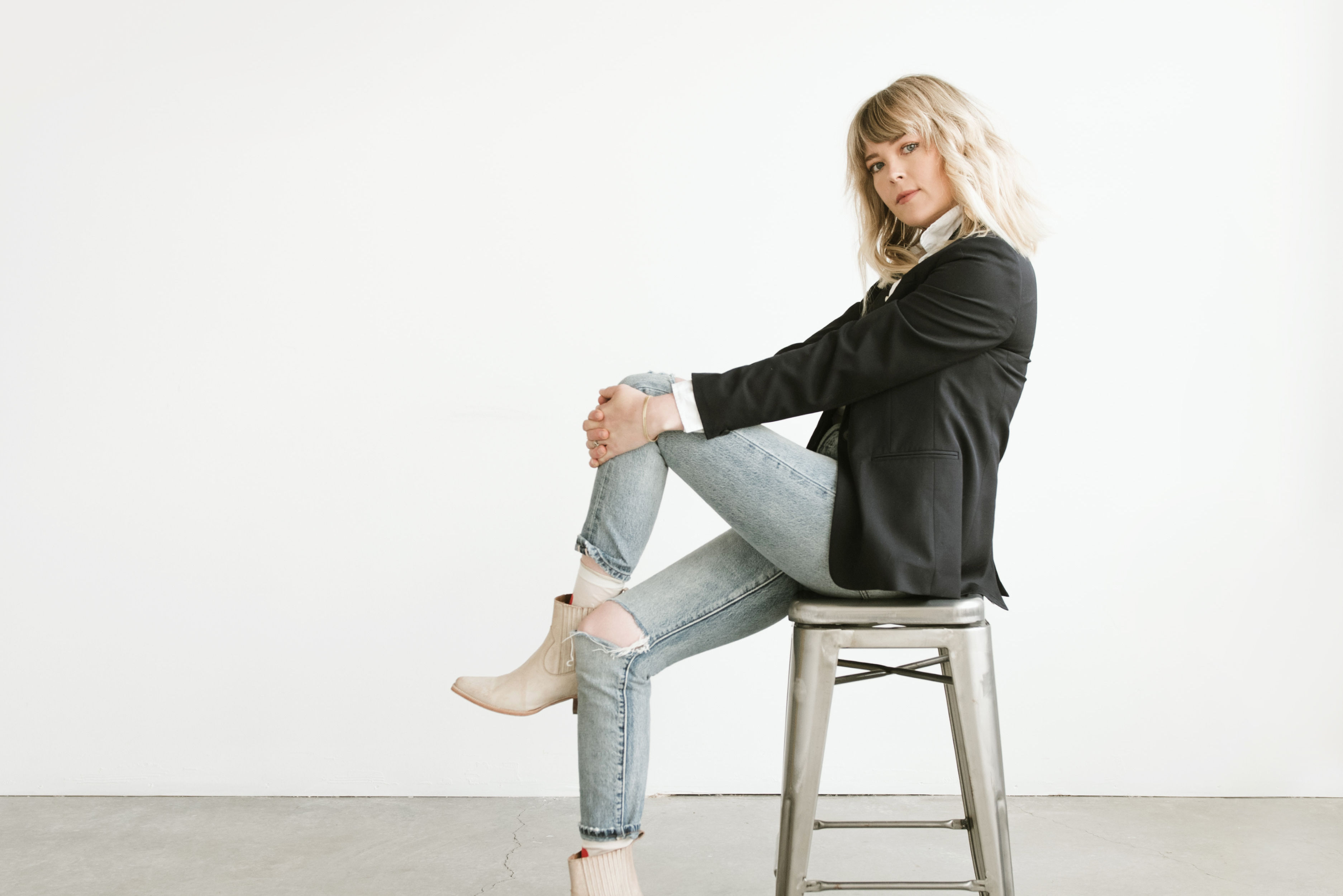‘Unlikable’ Narrators and the Impossible Expectations of Motherhood

Kit insists that, really, she’s fine. Never mind the reticent sessions with her sliding-scale therapist and the panic attacks at the grocery store. Never mind her escapist fantasies while her 3-year-old, Gilda, a tyrant in a leotard, consumes her entire being. “I’m fine,” she thinks, offering her body as compensation for her mental vacancy. “It’s fine,” she consoles herself. “The body takes over…”
I had a hard time with Kit through the first 50 pages of Kimberly King Parsons’s debut novel, We Were the Universe (Knopf). We meet its 26-year-old narrator in Pivot, Texas, the fictional small town where she carts Gilda from the park to gymnastics to the grocery store—all packed with boring moms and their obnoxious kids. Weekly dates with her partner, Jad, a customer service rep for a discount hospice supply company, are just as banal, more so because they’re mandated by that sliding-scale therapist—the one she lies to.
But soon I caught myself chuckling at Kit’s wry comments, curious about her relentless sexual fantasies. A creeping intuition told me that something I couldn’t yet understand was driving her emotional absenteeism. I was rooting for her, I realized, like you root for a stranger in peril whose struggle somehow directly taps your deepest empathy.
When I spoke with Parsons in March, she had just returned from speaking on a literary panel about unlikable narrators and told me she read an early scene from Universe to illustrate the concept. Kit is safe behind the parent lounge’s double-sided glass, daydreaming about Jazzy, her daughter’s gymnastics instructor:
When I fantasize about her, I fixate on the two of us naked, comparing skin. “This is what pregnancy does,” I’d murmur, opening my arms for her. “These are my blown-out elastin fibers.” I want to be stretch-marked all over her, draped across that tight body.
A few paragraphs later, a kid pounding on the glass breaks Kit’s fantasy, jolting her back to the bleak waiting room. At the end of practice, Jazzy reminds Kit that her bill is overdue. A check is coming, Kit promises, her mind characteristically elsewhere, taking in Jazzy’s skin, her peach leg warmers.

“She’s deep in fantasy in her mind—and it’s not because the Tiny Toads gymnastics class is particularly erotic. It’s just the only time all week that she has to herself, and so all of her lust lurches back into her life,” says Parsons, with a twinkling excitement in her eye, adding, “I never set out to write unlikable narrators. I always find them to be quite charming.”
Parsons has never been afraid of inconvenient truths. The stories in her short story collection Black Light, a semifinalist for the 2019 National Book Award that’s also set in Texas, tackle the relationship spectrum, first loves to strained marriages, substances to former selves.
Originally from Lubbock, Texas, Parsons, who’s 44, spent a decade in New York, first as a student in Columbia’s MFA program, before moving to Portland in 2017. But her fiction remains mostly in the Lone Star State. “Sometimes I hate where I’m from,” Kit thinks in Universe, “but the shape of Texas on a map—I can’t explain it, it chokes me up.” Several other autobiographical threads find their way into Parsons’s writing, like the joy and exhaustion of being a first-time mom; her positive, formative experiences with psychedelics; and the unique devastation of losing a teenage sibling.
Losing her brother, who died unexpectedly at age 19 when Parsons was 26, was a catalyst for the complex emotions she set out to write in Universe. “I couldn’t walk around in the world anymore,” Parsons says, reflecting on the time after his death. “I felt I wasn’t living life for a period of time.”
Parsons became a mother years after her brother died, but she wanted to craft a character whose new parenthood is overshadowed by grief. Kit’s sister Julie’s death happens off the page, back when Kit was 21 and pregnant, around when her and Jad decided to get married. Stripped of her familiar survival tactics—newly married means no escapist sex with randos; pregnant then breastfeeding means no alcohol—she turns to the only strategy she’s got: sneaking off while the kid and husband are occupied to watch porn on her cell and quickly rub one out in the bathroom.
“Some people get really hung up on the idea of a mom looking at porn,” Parsons says, emphasizing that this is not a book about porn. And it’s not. Porn is just one example of the book’s insights into the ways humans cope and into the oppressive taboos and impossibly high expectations new mothers face. “Everyone tells you you need to be present!” Parsons says. “You need to be mindful!”
Kit does the best she can, floundering with the expectations of her new reality. “Use your mom voice and say no,” a friend tells her when Gilda, nearly 4 years old, insists on breastfeeding. “What’s mom voice?” is Kit’s earnest reply.
Parsons describes her “unlikable” characters as “trying and failing and making a lot of mistakes.” (They grow on you.) Universe, she says, is “about a person who’s technically doing the right things but isn’t ready to be helped.” The heartbreaking truth of the all-to-familiar scenario is that, she adds, “Until you’re ready to be helped, no one’s going to help you.”
Kimberly King Parsons will be in conversation with Portland author Chelsea Bieker on May 14 at Powell’s City of Books.




